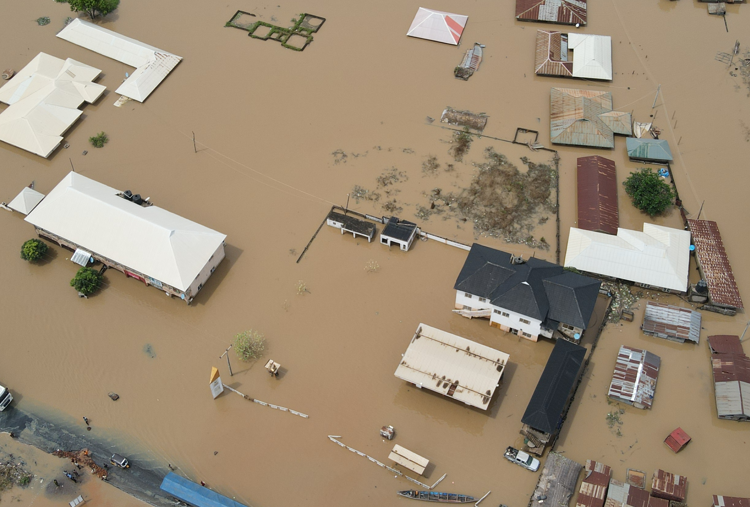Residents of Lokoja and neigbouring districts in Kogi State are going through the worst of times due to the devastation caused by the flooding which will take years to rebuild, just as the material cost and human hardship caused by the flood in the state may take several years to get over.
For now, over 80 people are confirmed dead due to the disaster, with the figure expected to rise.
The floods have affected over nine local government areas in Kogi State, namely Kogi-Koto, Lokoja, Igalamela-Odolu, Bassa, Idah, Ibaji, Omala, Ajaokuta, and Ofu, ravaging over 160 communities. The homes of Kogi House of Assembly members were not spared, too.
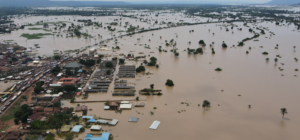
Local rescue teams were seen working under tough conditions and combing through the wreckage and flood to evacuate the remains of their loved ones.
The menace has led to the displacement of 200,000 persons, destroyed businesses, farmlands, crops, schools, hospitals, and homes.
Some motorists have remained stranded for more than five days, and more worrisome are truckers of perishable cash crops who are on the verge of losing hundreds of millions of naira as their goods are rotting away.
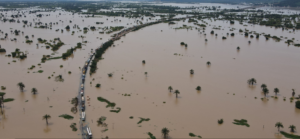
Also, thousands of displaced persons were seen in shelters camping outdoors in schools amid harsh weather conditions, facing an uncertain future following arguably the deadliest, and most destructive flood in Kogi’s history.
The reportage of the flooding has been scant in many national dailies, with the pathetic situation and the plight of the victims from over 160 communities grossly underreported.
Thousands of truckers were seen trapped in the traffic stretching to as far as 50 kilometres to Konton Karfe – Lokoja, with drivers transporting food seen helplessly disgruntled.
Also, commercial motorcycle riders have added to the hardship of the those caught in the natural disaster, as they now charge between N5,000 and N7,000 to cross the river from Koto to Lokoja.
Security personnel including police, naval, and FRSC officials were seen completely overwhelmed while controlling the traffic, with hundreds of articulated lorries, trailers, tanker drivers and motorists all trying to beat the traffic.
Hawkers of soft drinks, snacks and water were seen making brisk business with the prices hiked to above 300 percent.
Just like hawkers, boat owners, appropriately called boat helmsman or captains, are now taking advantage of people’s helplessness to make brisk business, with boat rides with 30 people which initially cost N500 each now costing N2,500, while speed boat rides now cost N3,000.
Motorists Decry Worsening Traffic Situation
The Abuja-Lokoja expressway is at the moment a nightmare for travellers as the road, which is the main gateway between the North and the South of Nigeria, now transformed into a notorious gridlock hub, especially for articulated trucks and other heavy duty vehicles transporting goods to the South and North and vice versa.
“The situation is very, very complicated (bad),” said a driver of an articulated vehicle who has spent five days in the traffic, Ogundipe Mauruf.
Mauruf said the motorists did not envisage the scale of the flood and criticized the federal government and the media for not properly educating road users that the road is not motorable.
“There ought to be surveillance daily during the rainy season when there are issues like this. The road would have been blocked and an announcement would be made on radio or television to advise road users to stay in their houses or use alternative routes, pending when the road is free for movement.
“When that is done, people would not be trapped on the road like this amid insecurity in the country. I am going to Lagos, but there is no road to move for the past five days. I am completely exhausted and hungry. There is nothing to eat here. I am hungry and becoming sick,” he said.
Like Mauruf, another container trucker conveying onions to Lagos is Mohammed Tukur.
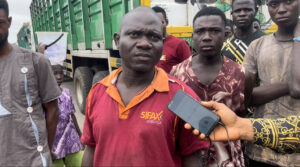
“I am conveying onions from Kano State to Lagos, but I am trapped here. We have spent three days on this road and the onions are gradually getting rotten.
“We are appealing to the government to help us fix this road so that this annual occurrence will be a thing of the past. Onions and tomatoes are not supposed to last more than two days in a truck. There are 425 bags of onion on this truck and each bag costs N25,000. That means about N10 million worth of onions can get spoilt soon.
With the current economic situation in the country, Ayodele Olashu said the only thing the government owes the citizens now is food security and good roads.
Another stranded goods driver who gave him name simply as Olashu said some of his colleagues had spent seven days on the road.
“We have spent all the money we have on us and there is no more money to take care of ourselves. I am sick and hungry,” he added
Motorists are having a hard time negotiating the failed sections of the Bida to Lapai part of Suleja-Bida-Mokwa road as the entire road is blocked, with traffic diverted from Lokoja to Abuja road worsening the situation.
Already some articulated vehicles have blocked the road, stalling traffic when LEADERSHIP Sunday visited the road yesterday.
Some drivers told LEADERSHIP Sunday that they had spent over three days on the road as articulated vehicles have blocked and taken over both sides of the road.
The assistant corps marshal, public education, of the Federal Road Safety Corp (FRSC ) headquarters, Bisi Kazeem, had last week advised motorists traveling to the South-West region of the country through Lokoja to take the Suleja-Bida-Mokwa road.
LEADERSHIP Sunday, however, observed that most parts of the road are in bad shape and may not be able to serve the purpose of the diversion from Lokoja..
It was observed that from Lapai to Bida, most parts of the road have failed, and motorists from both sides of the road are finding it difficult to pass through, thereby causing gridlock and total blockage in some areas.
An articulated vehicle driver, Ismail Mohammed, said he had spent three days on the road and that ten of the cattle he was transporting to the South West had died.
He said, “The road was bad before, but with the diversion, the situation has become worse. You can see me slaughtering one of my cows; this is the tenth in three days.”
Another motorist, Malam Garba Nura, said he arrived at a bad spot of the road on Thursday and had been in the same spot since then, with no help in sight.
“I learnt that the same thing is happening around Jebba-Mokwa axis; for the authorities that diverted the traffic to this road, they are not fair, they should have known that this road is bad, and the diversion is not properly thought out,” he declared.
Already, residents of the major towns and villages along Suleja-Bida-Mokwa road are worried and afraid that the latest developments will cause them more hardship in connecting with other towns and villages.
A resident of Bida Saidu Abdullahi told LEADERSHIP Sunday: “You can see Bida to Baddeggi road linking Suleja Road is blocked by trailers and tankers, there is no way for small cars and buses to pass; it is as good as if we are caged in here.”
Also, at Lapai, a community leader, Nuhu Tanko, said: “We cannot go to nearby villages because the roads are blocked. We learnt that the traffic from Lokoja is diverted to this road that is already in bad shape.”
On what the authorities are doing to open the blocked road, the spokesman of the state command of FRSC, Raji Egigogo, said the command “is trying to ensure that there is gradual movement of the traffic instead all the vehicles being stationed in a place.”
He confirmed that parts of the road had failed but that “our men are in Lambata, Lapai, Agaie, and Bida to ensure that no matter how slow the traffic is, it should continue to move.
Raji said some may be diverted to Bida-Minna Road to link Bida or Suleja to ensure the free flow of traffic but said articulated vehicles are the cause of the gridlock.
Travellers and motorists had bemoaned the discomforts associated with plying the alternative routes advised by the Federal Road Safety Commission as a result of the heavy flooding of the Koton-Karfe part of the Abuja-Lokoja Highway.
The FRSC had stated that flooding had impeded the free movement of travellers on the Lokoja-Abuja expressway since last week and advised motorists travelling to the Southwest region of the country from Abuja to take the Suleja-Bida-Mokwa road, while those travelling to the South-South/South-East regions should go through the Nasarawa-Oweto bridge-Adoka-Otupka axis.
Transporters have now said the diversion is seriously slowing down their journey and they cannot continue with the same pattern while some are of the opinion that the long journey is safer compared to the risk associated with crossing the flooded road with the ferry.
Both the passengers and transporters are at the receiving end. While passengers are paying more than what they used to pay on the Abuja-Lokoja, transporters are also paying more to fuel and maintain the vehicles.
LEADERSHIP visited the arrival and departure terminal of the Lokoja Mega Park and the facial expressions of the transport operators indicate that the diversion is more of a burden.
Chairman of National Union of Road Transport Workers, Alhaji Haruna Salami, said drivers are experiencing delays as a result of the long distance.
He said, “It is not an easy thing to go to Abuja through the Loko-Oweto bridge. When the Road Safety Commission announced that we should go through Nasarawa, my team went to Abuja through that road but the report they came back with is not satisfactory.”
According to Salami, going through the route had doubled the travel time as a result of the bad spots that stall movement on the road.
The NURTW chairman added: “The route is safe but our people are not finding it funny because the road after Ankpa to Otupka is very bad and some other parts after the new Oweto bridge, but I advised our members to continue using the road till the flood recedes.”
Daniel Asukwo, a middle-aged driver that made a stopover said, “We used to spend less than three hours to Lokoja from Abuja using the normal route but now we spend about seven hours because the road is too long and it’s not even good”.
He faulted the decision of the FRSC to divert motorists to the route without accessing the road.
He said, “Imagine, I am going to Auchi but I have to follow Benue because the flood has taken over the road, and that road too is long and very bad. Have they forgotten that the Ganaja road is also flooded and we have to enter the estate to cross to Ajaokuta meanwhile the roads are not as good as the Abuja Road.”
Similarly, passengers have expressed their frustrations at the delay caused by the diversion.
A trader named Abu Danlami narrated his ordeal in the hands of drivers who charged him exorbitant prices because of his luggage.
He said, “I came to Obajana from Abuja but they collected about N8,000 from me because of my load and I cannot cross water because I’m afraid.”
LEADERSHIP learned that some commuters are crossing the flooded Koton-Karfe road using the ferries, but stakeholders have raised an alarm with the way the operators load passengers and ferry them without safety precautions.”
10 Babies Born In IDPs Camps
In the midst of the flood chaos, 10 babies have been born across four Internally Displaced Persons (IDP) camps in the Koto-Karfe area of the state.
The camps are Akpaku, Ozahe, Girya, and Ozahe camps in Koto-Karfe, Kogi State.
Narrating her ordeal, the mother of one of the newborns, Zainab Zakan, lamented that her baby’s health is deteriorating amid the poor living conditions.
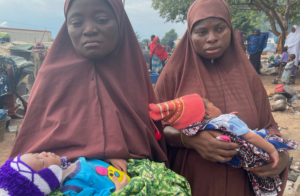
“We were in Akpaku community when the flood sent us out to this camp. We lack food and medicines. My baby is sick.It is painful to be living here and I do not like where I am staying. I want the government to come to our rescue,” she said.
Another woman who gave birth in the camp, Amina Salihu, said she is not comfortable living in the IDP camp.
“We need support and assistance from the general public. I am not comfortable in this camp at all. We need food to survive and we need assistance from the government so that we can have a better place to stay. I am not happy that my newborn baby and I are living in this condition,” she said.
Business Owners, Residents Lament Destruction Of Properties
Following the floods that wreaked havoc in parts of Kogi State, business owners in Lokoja and displaced persons across some rural communities in the Koton-Karfe area of Kogi Local Government Area of Kogi State have lamented their ordeal.
Local communities affected include Akpaku, Edeha, Edegaki, Ikumo, Ozahi, Okpodo, Kasemiya, Adabode, Ukwo, Edekakpo, Iganumo, Odama Riku, Onumaye, Esikaku, Orieza, Ibohu, Adagyema and Eteh, among others.
A victim who is a furniture maker, Gabriel Segun, expressed frustration over the damage caused by the flood to his business.
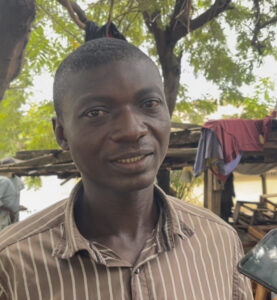
“The flood has caused serious damage to my business, because for more than two weeks now, I cannot work in my shop. My equipment was damaged too. My furniture equipment worth over N2 million has been damaged. My customers are also calling me to deliver their furniture. They are aware of the flooding, but they insist I must pay them.
“So, we are just hoping that if there is any way that the government can come to rescue us, we will be happy. As I am talking to you, my house has been submerged by flood. My family members are squatting with families and friends pending when the water goes down.
“I will like the government to find a lasting solution to this flood. We know it is a natural disaster, but they should look for a way to make the impact less and not life-threatening to people and their property by introducing dams. Since we are living here, we have never experienced this kind of flood before,” he added.
An elderly woman, Amina Shuaibu, while narrating her ordeal said she was living in a village close to Koton-karfi, but the flood destroyed her house and all our foodstuff.
She said when she relocated to the hill, bandits made their lives miserable.
When the flood started, she said she ran to a nearby community thinking she could manage her life there, but the flood came again to chase her from there.
“Now, our condition is very critical. At the first time we moved to a high hill to settle down, but bandits started disturbing us and we ran to the present community, where we were given a house to stay. That was where we were when the flood came to pursue us out again. Now we are up to ten managing a room.
“I used to farm fish and rice, but the water has destroyed everything for us. I am presently helpless and homeless. The government should come to our rescue and help us out of this situation. I now share a room with 10 other people,” she said.
Another victim, Suleiman Ozahi, from Ozahi community, who decried the poor state of the camp, lamented that he had lost his source of livelihood due to the flood.
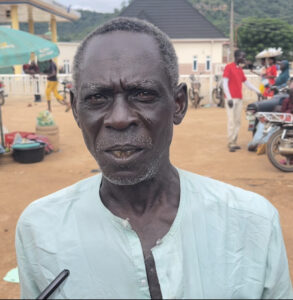
Ozahi said, “Flood drove us out of our community. I am the eldest in my family. We are seriously hungry. Since morning I have not eaten; this is almost 3pm and I am just taking pap now because of this menace. My building has collapsed and my farmland has been washed away by the flood.
“I want the government to relocate us to decent houses and give us food. We also appeal to the government to fix all bad roads in the state.”
One of the leaders of the IDP camp at Koton-Karfe, Muhammed Usman, lamented that the federal government had neglected them.
He said, “Over 48 communities were affected in Koton-Karfe. Since we became displaced, nobody. either the government or individuals have visited us or given us succour.
“We have been neglected to fend for ourselves and the little food items we came with have been exhausted. We came here on September 24. The entire Opaku community completely relocated to this camp because of the flood.
“The truth is that we are feeling really bad because our entire communities and foodstuffs were submerged. Things we used to take care of our daily needs were all taken away from us by the flood and in the course of relocation by boat from our community, we lost everything we had.
“The government should come to our aid by providing foodstuffs and also give us building materials to help us settle down and rebuild our houses after the flood.”
Also, a trader, Ramat Ishak said her shop was submerged by flood.
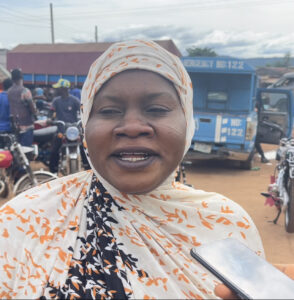
According to her, “My shop was submerged by the flood and I lost over N50,000. My shop is the only hope for our survival. I am helpless.
“The government should come to our rescue because I borrowed money to start a new business. The flood has washed everything I have away.”
A female victim, Saidu Rheina, lamented that their community farmlands were completely destroyed by the flood.
“We are starving in this camp; nobody has come to assist us. Amid the flood in our community, many deaths were recorded, even today, somebody died in the flood.”
Narrating her ordeal, another female victim, Saadatu Aduma, said she woke up at night to see that her house was flooded. Aduma said her family had flee to safety.
“The water flooded our community to the extent that our building started collapsing and all our farm produce was completely destroyed. One of our sons died today when a canoe capsized. We just buried him this morning. This suffering is too much for me,” she sobbed.
Another victim from Akpaku community, Margaret Isa, whose daughter gave birth in the IDP camp, lamented that their house, farmland, and farm produce were submerged by the flood.
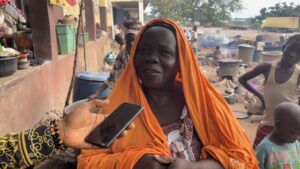
“All our families have been displaced. This situation has placed us in unbearable hunger because nobody is helping us. We need money to repair our houses when the flood goes down. Even if we have to stay in the mud, we have no choice. We are calling on the government to come to our aid.”
A female victim from Koton-Karfi, Fatima Shuaibu said the flood has put his family in serious want.
“Our house was submerged. Presently, eight of us are staying with our brother in his one-room apartment with his wife. Most of our properties have been condemned because when the flood started, we started running for our lives because it came with a massive force.
“We are calling on the government to come to our rescue because our major problem now is feeding. We do not have food to eat,” she said.
A victim, Mohammed Shuaibu said the flood in his community has lasted almost three weeks and has destroyed many houses and blocked the federal highway.
“When it started, the community decided to invite boat riders to reduce the stress of the travellers. It is a very terrible situation because we have never experienced this kind of thing before; this is the first time we have experienced this. The flood used to come, but it has never been like this.
“People from the neighbouring villages are now IDPs here. I believe that to solve this problem, the federal government should try to increase the number of dams in Nigeria to control flooding,” he said.
He added that two corpses were discovered in the flood, with local divers searching for more.
Boat, Motorcycle Operators Make Brisk Business
The pathetic development is at the moment an advantage for canoe operators in Kogi state capital, who are cashing in on the situation to make brisk business.
A lady, Aisha Musa, noted that she had never travelled by boat before, but in order to meet with her appointment in Lokoja, he said the boat fare was too high but she had no choice.
“I just paid N2,500 to the boat helmsman. It is so sad, but I have no choice. All I pray for is journey mercy,” she added.
Similarly, commercial motorcycle operators numbering over 100 were seen conveying passengers to Lokoja at N5,000.
A boat helmsman, Suleiman Dauda said they now enjoy more patronage. He said they were called to assist the people to convey them and their loads across the water.
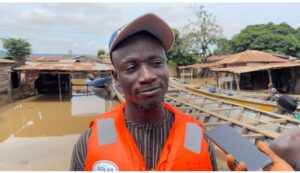
“The distance from Koto to Lokoja on the water is about 15km and we currently charge N2500 per passenger on flying boats. We give them life jackets when they board our boats,” he said.
Another boat rider, Umar Suleiman, said they are doing their best to transport commuters across the flood to Lokoja.
“Because without us here, they will not continue their journey. Sometimes we collect N2000 and N2500 from the passenger. We used to collect N500 from them before now, but we increased the fare because of the flood and the difficulty in getting fuel,” he said.
Another, boat helmsman Ibrahim Mahmud urged the government to make life jackets more accessible.
160 Communities Submerged, Says Ohimegye Of Igu-Kotonkarfe
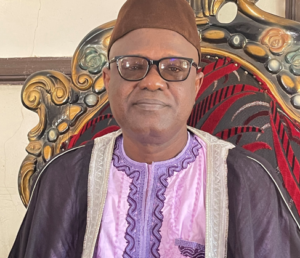
The Ohimegye of Igu-Kotonkarfe chiefdom in Kogi local government area, Alhaji Abdulrazak Isah Koto lamented that over 160 communities had been submerged by the flood.
He appealed to the federal government to assist the victims of the flood with farming inputs so that they can go back to the farm when the flood rescinds.
He lamented that that they can no longer predict when to plant due of the annual flood, because whenever they want to harvest their crops, their farms would already be flooded.
“Sincerely I do not know how it got to this level. This year’s flood is worse than in 2021. In 2012 the floor did not cover the federal road like this year, but this time around, the impact cannot be described. The flood got to where it has never gotten to in the past.
“Since 2012, flooding has become a recurring menace in Kogi local government, Koton Karfe. If you look at the location of this place, most of the settlements you find here are at the river bank of rivers Niger and Benue.
“So, in most cases, any time there is flooding, other local governments will not be affected, but this one will be affected. As we speak now, the entire local government area is affected; even the local government capital which is Koton Karfe is affected for the first time.
“Since the flooding started, all the riverine communities have been submerged. If you go by boat from River Gurara to River Niger, down to River Niger,many communities have been displaced because the entire local government is flooded. As we speak now, 160 communities have been affected by this flood,” he said.
The monarch explained that the cause of the flood is man-made because, during the construction of the federal highway, the construction company tried to sandfill the road from the bridge to get to the federal road.
“Water from the east from about three to five locations is still flowing into the river. So most of these ways that are supposed to be flowing into the river are blocked, so instead of flowing into the river, it is flowing out when there is flooding.
“Also, climate change is a factor and the River Niger and Benue have become so shallow that they can no longer contain the volume of water. So there is the need to dredge the Rivers Niger and Benue if we want to solve this problem.
“The channels to this river have to be dredged, because over the years, some of these channels have become overgrown with trees obstructing this channel, so there is the need for channeling the waterways into the river,” he said.
He further said that since the flood started, there has been a spillover of IDPs into other local governments, while some passengers have drowned along the way, adding that there have been several casualties across Lokoja.
“There have been incidents of boat mishaps because of the hours it takes from the point of the flood to Lokoja. We also had victims who were sick and could not have access to medical care. They died on the way.”
According to him, there are about six IDP camps housing the indigenes of the local government.
“We are doing a communal effort presently so that we will be able to sustain the victims, mostly the children, elderly people, and sick people,” he said.
Also, the president of the Koton Karfe-Igu descendants association, Dr. Abdulkarim Shuiaibu stressed that since his 54 years of existence in the Kotonkarfe community, he has never seen such a flood in the area, adding the flood as an unusual disaster.
“Even in 2012 when it started, it was not as disastrous as this, because it did take over the federal road at that time. This flood can be attributed to the volumes of water released by most of the dams we have in Nigeria.
“Koton Karfe is strategically located very close to the conference city of Lokoja, so we are at the receiving end of this disaster because both rivers Niger and Benue, to some extent, met here. So this is like a melting point; that is why most of our communities have been submerged by the flood,” he said.
Shuaibu lamented that the plight of the people had been terrible, stressing that in Kogi local government area, 11 wards have been completely taken over by the floods.
“We have over 67 communities in all these wards that have been submerged by the flood. As it is now, we cannot ascertain the number of casualties, but I can confidently tell you that we have had more than 20 casualties from this flood disaster. Even somebody that was traveling to Lokoja who came down to walk by the water got drowned in the water. We just recovered the body yesterday.”
He said that they were suffering because of the flood and that their major challenge is the issue of hospitals because they do not have good hospitals in the community to tackle such emergency challenges.
“Some of the lives that were lost were because there was no good hospital to rush them to for emergency attention because the hospital, we have here is like a consulting center
“We are calling on the government that beyond these palliatives, beyond all the small things they give at the end of the day in the name of intervention, they should build a well-equipped hospital here to take care of emergencies like this and other emergencies like road accidents,” he said.
FRSC, Nigerian Navy Call For Patience From Drivers
The unit commander of Road Safety Commission, Kotonkarfe Division, Adeboroye Oluwatoba Isaac, who said that the flood started 15 days ago, explained the efforts that the FRSC has made to ensure the free flow of traffic.
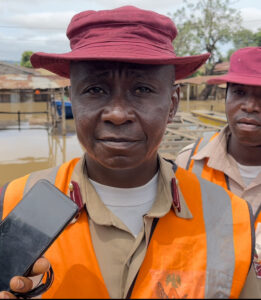
“The past week has been hectic in the sense that it has been very difficult to control motorists. But God has been helping us, that at least from where we are now, we have been able to streamline the route to one way and developed a strategy that we called zero tolerance to one-way traffic.
“So, motorists have been educated to maintain one-way traffic and the danger of driving against traffic. Apart from the fact that driving one way wastes the time of road users, it also contributes to the hardship of businesses and encourages road crashes. “I want to assure Nigerians that in the next two to three days, we should have zero traffic at the Abuja-Kotonkarfe-Lokoja route.
“My advice now is that motorists plying this route should exercise patience and try to understand federal road safety in our operation and take it easy. They should not drive against traffic and they should not be in a hurry,” he said.

Also, Sublieutenant T. Raymond of the Nigerian Navy, one of the leaders of the Nigerian Navy team present to salvage the situation, described the situation of the people affected as terrible for the past two weeks.
“Many livestock have gone, chickens, perishable items have all gone with the flood. But by the grace of God, things are getting better, and trucks have started moving. Today, there is no double lane, we only have a one-way crossing from Panda to Koton-Karfe, so the traffic is moving gradually.
“There is the need to dredge this river to have free flow of water. If the river is dredged this flooding will not occur; water would flow via its channel.
“We have been here controlling the traffic and keeping the place safe for the people that have been trapped here by the flood. The Police, Road Safety, and even the vigilantes are here also to make things easy for everyone,” he said.
LEADERSHIP had reported at the weekend how severe flooding that submerged parts of Nigeria, ravaging many communities, leaving hundreds dead, whole communities displaced and access roads cut off, with many people stranded and in need of urgent help.
The flooding triggered off power outage In Lokoja, the Kogi State capital after social and economic activities in Gadumo, a 200-housing unit accommodation phase 1 and 2, a fast-growing suburb in Ajaokuta Local Government Area of Kogi State was thrown into total darkness due to the flood that hit Lokoja and eight other local government areas of the state.
A reliable source from the regional office of the Abuja Electricity Distribution Company, AEDC, in a telephone interview with our Correspondent, attributed the power outage to the fact that the flood had hampered efforts of the officials of the company to rectify electrical faults created by the flood in the area.
He said the flood led to the fall of many electric poles, many of which are buried in the flood.
Our correspondent reported that Gadumo, Adankolo and part of Nataco areas bore much of the brunt of the flood which hit nine of the 21 local government areas of the state.
The flood, which led to the death of six persons through boat mishap at Ganaja village, also affected four other persons who sustained serious burns as a result of gas explosion in the house where they secured temporary accommodation, after they were sacked by flood.
The flood also destroyed over 600 hectres of farmlands and made thousands of residents homeless among other social, economic, emotional and psychological challenges confronting the people of the state, especially the victims.

